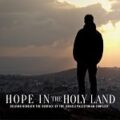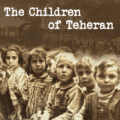In the acclaimed TV series Srugim, a delicate cultural fabric is woven through the lives of single Modern Orthodox individuals in Jerusalem. One element that adds both depth and tension to the series is “Shomer Negiah,” a Jewish practice where individuals abstain from physical contact with members of the opposite sex outside immediate family. This practice is deeply ingrained in the Orthodox Jewish culture and stems from biblical texts in Leviticus.
Srugim, known for its authentic portrayal of modern-Orthodox lifestyle, doesn’t shy away from exploring the intricacies of Shomer Negiah. The characters navigate the tightrope between their yearning for intimacy and the boundaries set by their faith. Srugim’s characters are multidimensional, and their struggles with Shomer Negiah are depicted with sensitivity and realism.
In the context of the series, Shomer Negiah serves as an emotional and social catalyst. It is not just a religious guideline; it becomes a defining aspect of relationships. Characters’ adherence or challenges to this practice can lead to personal dilemmas and conflicts with peers and family.
One of the aspects where Srugim shines is showcasing the internal struggles characters face adhering to Shomer Negiah. For instance, when characters are within close proximity or situations where touch could be unintentional, like in crowded public transportation or a handshake, the series reflects the mental and emotional toll it can take.
Moreover, Srugim’s portrayal emphasizes the importance of communication and respect. The characters often find themselves explaining their adherence to Shomer Negiah to those not familiar with the practice, striving for understanding without causing offense.
Through its characters and plotlines, Srugim invites viewers into a rarely seen side of Modern Orthodox Jewish life, offering a nuanced and respectful exploration of Shomer Negiah. This authentic representation not only educates viewers but allows for a deeper connection and empathy towards the characters and their journey.
In conclusion, Srugim’s adept handling of Shomer Negiah adds layers of complexity to its characters, while providing a window into a world where tradition and modernity are constantly in dialogue. It’s not just a series about finding love; it’s a study in navigating life within the framework of deep-rooted beliefs. Through Srugim, Shomer Negiah is not just a term or rule, but a living, breathing aspect of identity and community.
















